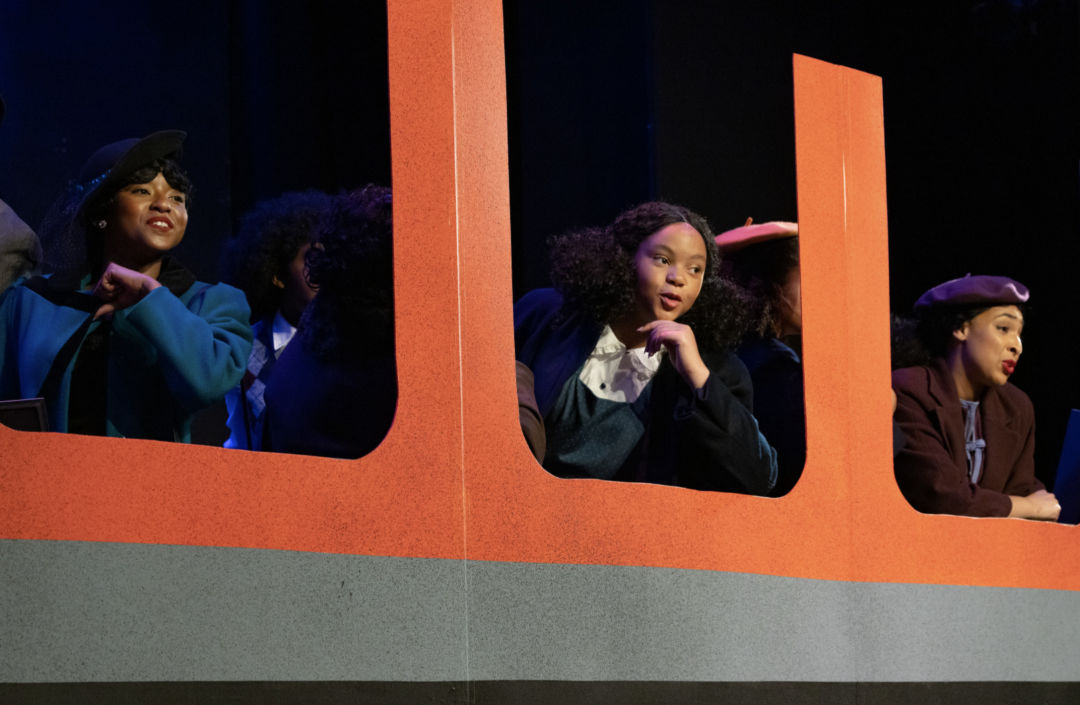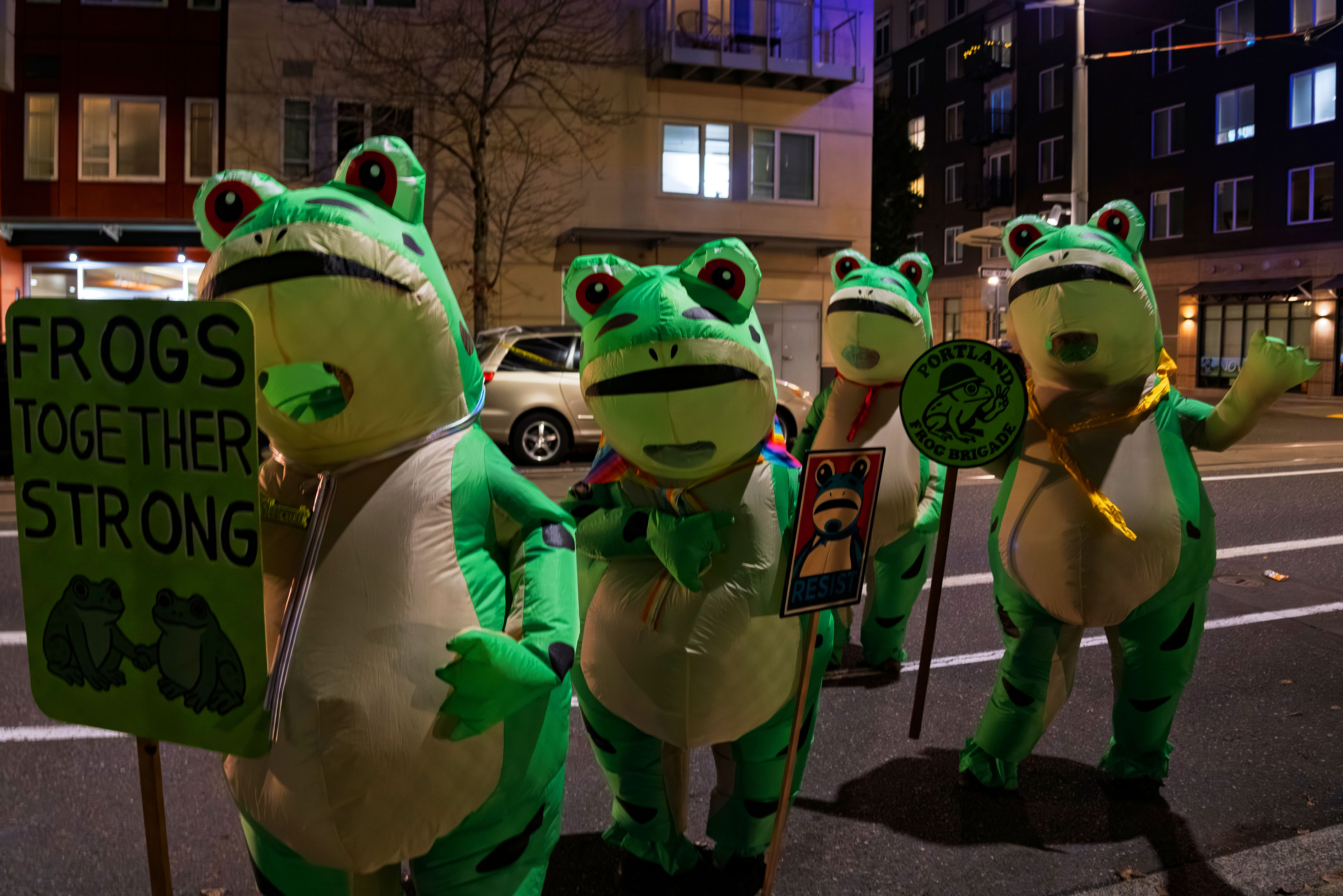A New Musical Brings a Lost History to the Portland Stage

Dress rehearsal for Vanport the Musical
“I was an adult with my own children when I heard the story of Vanport,” says playwright Shalanda Sims. “I remember asking my mother, ‘So, are we originally from Oregon? Why are we here? There aren't a lot of Black people. So, what's the deal with our family?”
Inspired in part by what her mother told her, Sims's Vanport the Musical, which she codirects with Northwest Children's Theater artistic director Sarah Jane Hardy, opens May 20. The mix of jazz, gospel, and true life stories is the first performance to hit the NWCT stage in more than two years. The musical is presented by World Stage Theatre in partnership with NWCT and Vanport Mosaic, and is part of the seventh annual Vanport Mosaic Festival.
Even if you were born and raised in Portland like Sims, there’s a chance you never learned the history of Vanport. In the 1940s, the shipyard industry in the Portland area was booming. Kaiser was hiring left and right during World War II, which led to a worker housing shortage. In response, a from-scratch "city" (though it was never incorporated) was hastily built near what's now Delta Park in North Portland to “temporarily” house the influx of workers, many of whom were Black. After the war ended, redlining and other racist practices made it harder for Vanport's Black residents to find other housing in Portland, and many stayed on in structures that were meant to be temporary. On May 30, 1948, during a very wet spring and despite assurances from the city that everything was fine, a railroad embankment that served to hold back the river collapsed. Within an hour, the community was underwater. The flood left at least 15 people dead and 18,000 homeless, about a third of whom were Black.
Sims’s great-grandmother was one of the 40,000 people who lived in Vanport during the war. She had traveled from Texas to work at the shipyards here before having her daughter (Sims’s grandmother, who was about 5 years old at the time) come join her. Remaining there after the war ended, Sims’s grandmother and great-grandmother were among those displaced by the flood, finding their way to Northeast Portland with only one family photo salvaged in all the chaos.
In 2010, Sims discovered a very limited pool of preexisting resources for Vanport-related research: one book and a few online articles, she says, all of which consisted entirely of facts, figures, and historical data. No personal anecdotes, testimonies, or even names of the people who lived there. The real sources of inspiration for Sims's play came from the stories of the “elders” within her own community (some of whom Sims even chose to name characters after, characters who are “rich and amazing with fantastic backgrounds and hopes and dreams and a sense of community and some ... drama,” according to Hardy).
“My mother introduced me to some of the Vanport survivors who are still living, who really helped me build this story,” says Sims. “That's when I thought, 'Well, this story is way bigger than just my family ... how can I tell it?’ And the tool I had to use was theater. So, I decided to write a play. And because I also sing, music just comes to my head naturally. So I just fused the two together.”
While the original play was Sims’s brainchild—Vanport first debuted at Jefferson High School back in 2013—Hardy’s eye for thematic exposition is evident. She emphasizes the complexities in the script, such as the transition in an individual character’s arc, before being brought back to the “reality of the horrifying politics and public policies and racism.” As a director of NWCT, Hardy stresses the importance of reaching an intergenerational, family-friendly audience—one that includes children in tough conversations.
“That part of Portland's history ... has not been left out of Portland Public Schools’ day-to-day by accident. It's not by accident that I didn't know about Vanport,” says Hardy. “And I think children deserve the truth. So, to me, having the show onstage at Northwest Children's Theater is a part of our commitment to providing experiences for children that are definitely life-altering.”
Both Sims and Hardy drew inspiration from the work of local activist and “story midwife” Laura Lo Forti, who worked to launch the Vanport Mosaic Festival, a memory-activism program geared at “preserving silenced histories,” in 2016 and who encouraged the two now-codirectors to work together.
“The stories that revolve around Black voices, being told from a Black perspective, are few,” says Sims. “But once you started sharing this information, and once the play came out in 2013, it just opened up [the conversation]. I feel like it gave them [Vanport survivors] permission to talk about this place that we hadn’t known about.”
The seventh Vanport Mosaic Festival runs May 20 through June 7. Performances of Vanport the Musical run May 20 through June 5.




